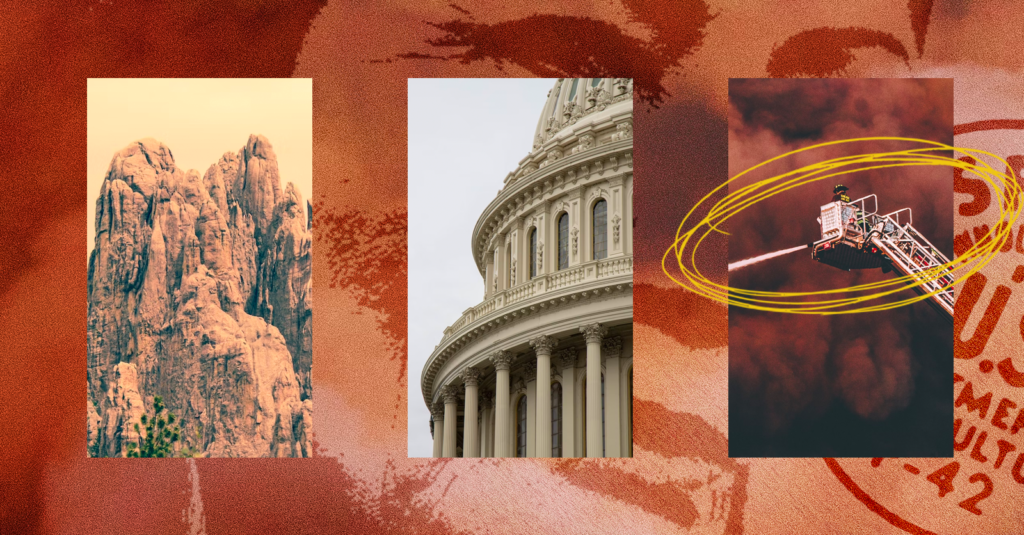
Wildland Fire Policy Accelerator
The U.S. is experiencing more frequent and intense wildland fires. While fire is a natural and normal ecological process, today’s fires are causing more destruction to people and property. A changing climate and our current policy responses are amplifying these negative effects. The U.S.’s response to wildland fire can be better informed by science, evidence, and Indigenous perspectives.
The future of wildland fire policy needs you. FAS is partnering with Conservation X Labs, COMPASS, and the California Council on Science and Technology (CCST) to find new policy ideas that improve how we live with fire. FAS will synthesize recommendations and provide inputs to the Wildland Fire Mitigation and Management Commission, which has been tasked this year to provide recommendations to Congress on ways to better prevent, manage, suppress and recover from wildfires.
We’re looking for ideas on:
- integrating the science of climate change in wildland fire policy,
- the impacts of smoke on public health,
- and Indigenous knowledge on prescribed burning.
We’re looking for ideas and policy recommendations that are innovative, ambitious, and actionable to shape the future of federal wildland fire policy.

FAS is partnering with Conservation X Labs, COMPASS, and the California Council on Science and Technology (CCST), because of their deep expertise in the accelerator topics and connections to interested communities.
If selected, participants will be expected to contribute 3-5 hours of work per week, much of which is asynchronous time spent drafting their policy proposal. Accelerator participants will receive comprehensive support from FAS, Conservation X Labs, COMPASS, and the California Council on Science and Technology (CCST) which includes:
- Virtual whiteboarding sessions to workshop ideas and engage in policy design sessions.
- Access to policy toolkits, workbooks, technical editing, and other resources to ensure a compelling final written product.
- Exclusive Q&A and learning sessions with policy advisors and subject-matter experts in and outside of the federal government.
- Idea exchanges and social events to build community with members of the accelerator cohort.
Following the completion of the accelerator, FAS will synthesize final memos for the Wildland Fire Mitigation and Management Commission. Authors may volunteer to support this effort.